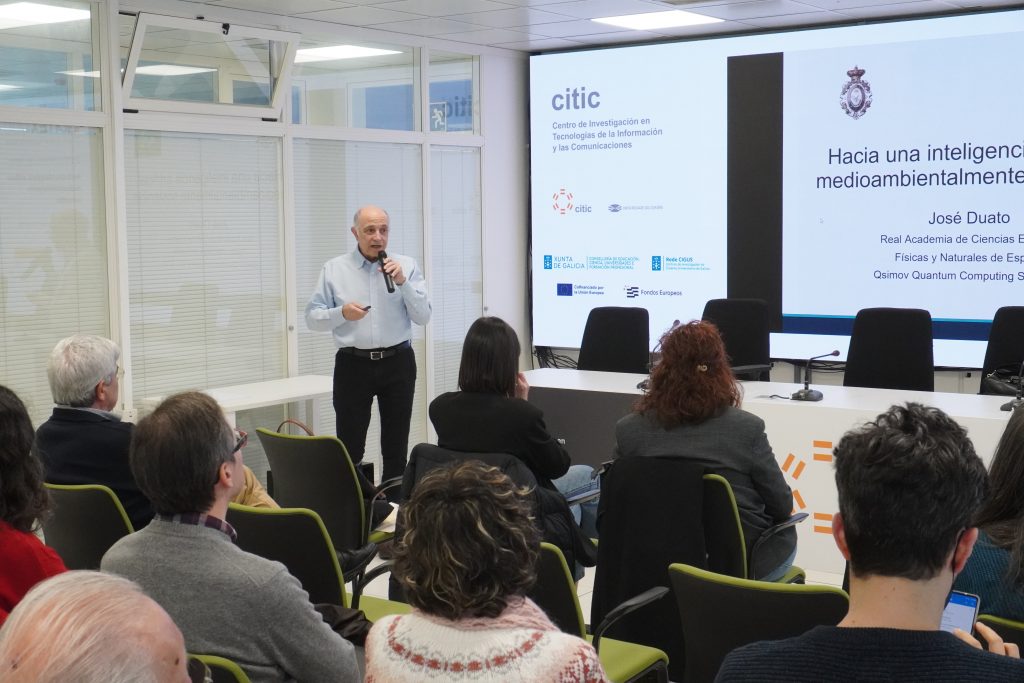
From green algorithms to efficient hardware: key strategies to reduce the energy impact of artificial intelligence
- José Duato gave a lecture at CITIC titled “Towards an Environmentally Sustainable AI” as part of the Inditex-UDC Chair of AI and Green Algorithms.
CITIC at the University of A Coruña hosted this lecture on Monday, January 20, organized within the framework of the Inditex-UDC Chair of Artificial Intelligence in Green Algorithms. This activity, part of the lecture series “Green Convergence for a Sustainable Future,” featured José Duato, CTO of Qsimov Quantum Computing, professor at the Polytechnic University of Valencia, and a renowned academic.
Through a contextualization of the current state of artificial intelligence, Duato introduced the concept of deep learning, the most powerful AI method. The need to process vast amounts of data, the development of new methods, and the design of more powerful parallel architectures have made deep learning a current topic.
During the lecture, José Duato analyzed the environmental impact of AI technologies, emphasizing the energy consumption involved in training and using advanced deep learning models like GPT-3. He explained that training such models can consume an amount of energy equivalent to that generated by a nuclear plant in one hour, while the massive use of these tools reaches consumption levels comparable to entire cities. He also highlighted that AI’s energy consumption could represent 30% of the global total by 2030 and account for 80% of the energy used in data centers, posing a sustainability challenge.
In his presentation, Duato proposed concrete solutions to reduce this impact, highlighting advances in more efficient algorithms, known as green algorithms, designed to optimize calculations and minimize energy consumption. He also discussed technological advances in hardware, such as specialized accelerators and the integration of three-dimensional transistors, which have improved the efficiency of current systems. He emphasized future opportunities presented by emerging technologies like carbon nanotube transistors and analog computing systems, capable of performing multiple operations simultaneously with lower energy consumption. The researcher also explained that mathematics has helped optimize AI model training processes through, for example, backpropagation algorithms, which allow machines to learn from their mistakes and improve their predictions over time.
As part of the lecture, he shared Qsimov’s latest achievements, including an AI system that allows incremental retraining without forgetting previous knowledge, making it significantly faster and more efficient than conventional neural networks. This development, prepared for hybrid and analog computing, notably reduces environmental impact.
The lecture concluded with a collective reflection on the need to advance towards a responsible AI that is aware of its environmental impact. The activity brought together a diverse audience of professionals, researchers, and students interested in the future of technology and its relationship with sustainability, reinforcing the commitment of the Inditex-UDC Chair to promoting more environmentally friendly technological development.





